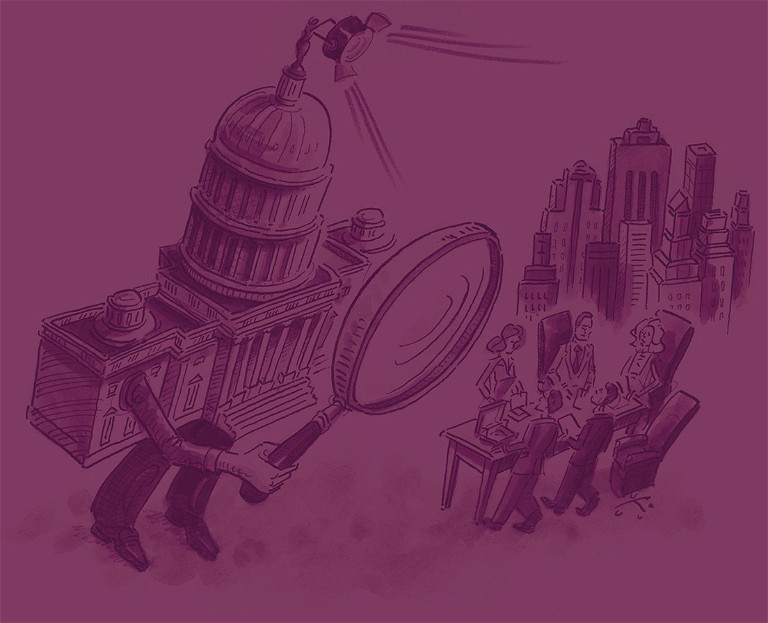CapitolBeat
by Jason Fox

Budget Time
A Deeper Dive Into the $300 Billion Package
In mid-June the Governor and the Legislature passed a framework of a state budget However, the substance of much of the budget a series on a largely partisan vote. In the end, the to meet constitutional deadlines. package came later in July when of budget trailer bills was passed package outlined a record $300 billion state budget that addresses a broad list of policy priorities.
A key piece of the budget package is $9.5 billion in inflation relief via the Middle Class Tax Refund implemented by the FTB as outlined by AB 192. Nearly 23 million taxpayers will receive a refund payment based on their adjusted gross income and whether they have a dependent. Payments may be as much as $1,050 for joint filers with a dependent with an income of $150,000 or less and will decrease for higher income earners. The FTB expects to begin payments by October of this year. Qualifications and estimated payment amounts can be found at ftb.ca.gov/middleclass-tax-refund.
Additional tax related provisions are included in AB 194, the tax policy budget trailer bill. Major components include:
• Extension of California state tax rules for Paycheck Protection Program (PPP) loans issued after March 2021 as part of the PPP Extension Act, the last round of the federal relief program. Prior to AB 194, California had only provided state tax relief for PPP loans issued before March 2021.
• Beginning after Jan. 1, 2022, a one-time penalty abatement for failure-to-file or failure-to-pay timely for individual taxpayers that have not previously been granted abatement, have filed all required returns, and have paid or is in a current arrangement to pay all outstanding tax liabilities.
• Apartial tax exemption for diesel fuel for the period Oct.1, 2022, through Oct. 1, 2023.
• Expands the Main Street Small Business Tax Credit by allowing it to be claimed on an amended return for 2020 and 2021 and extends the credit until Dec. 1, 2026.
• Expands eligibility for the Homelessness Hiring Tax Credit.
• Extends the California Competes Tax Credit by five years, through the 2027–28 fiscal year.
Ballot Measures for Nov. 2022
In addition to Legislative, Congressional, and constitutional office races, California voters will decide on seven ballot initiatives. As the Nov. 8 general election gets closer, these initiative are likely to get significant attention from proponent and opponent campaigns.
Prop. 1: Reproductive Freedom
A late add to the ballot, this proposition was added by the Legislature in response to the U.S. Supreme Court overturning of Roe v. Wade. Specifically, this would add abortion safeguards in the California constitution by barring the state from denying or interfering with a person’s right to choose an abortion or contraceptives.
Prop. 26: Authorize New Types of Gambling at Tribal Casinos
Sponsored by some of the state’s large tribal governments, this would legalize in-person sports gambling, roulette and other dice games at tribal casinos and designated horse tracks. It’s expected to raise tens of millions of dollars in fee revenue for the state general fund.
Prop. 27: Authorize Online Gambling
Sponsored by online gambling companies (FanDuel and DraftKings) would allow online sports betting through certified gaming tribes and large online betting companies. This is expected to generate hundreds of millions in fee revenue for housing and homelessness services.
Prop. 28: Funding for School Arts & Music Programs
This would set aside 1 percent of the required state and local funding (roughly $800 million to $1billion) for education for arts and music programs—particularly for schools in underserved communities.
Prop. 29: Labor Rules for Kidney Dialysis Clinics
This would add additional labor and staffing requirements for kidney dialysis clinics. This is the third time this type measure has been before California voter. The prior two were rejected in 2018 and 2020.
Prop. 30: Tax on Millionaires to Fund Wildfire Prevention & Electric Vehicle Infrastructure
This is a proposal to impose a new 1.75 percent tax on individuals with income more than $2 million per year. The $3-4.5 billion in new revenue would be directed toward incentives for zero-emission vehicles and the related charging infrastructure. Resources also would be directed towards wildfire mitigation.
Prop. 31: Referendum on State Law Banning the Sale of Flavored Tobacco Products
Asks voters to reconsider a 2020 state law that prohibits the sale of flavored tobacco products, regardless of how it is consumed (chewed, smoked or vaped).
Jason Fox is CalCPA’s vice president of government relations. You can reach him at jason.fox@calcpa.org.